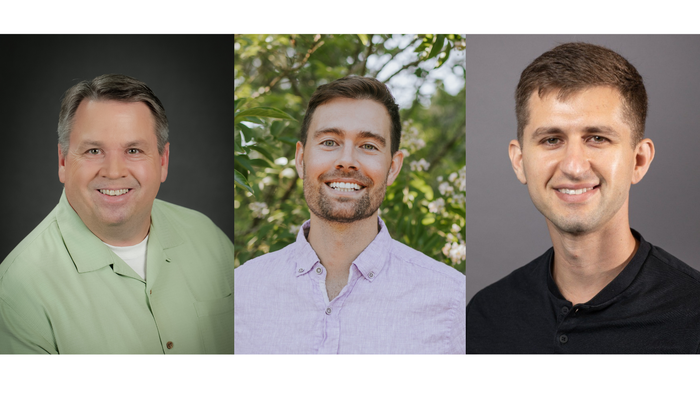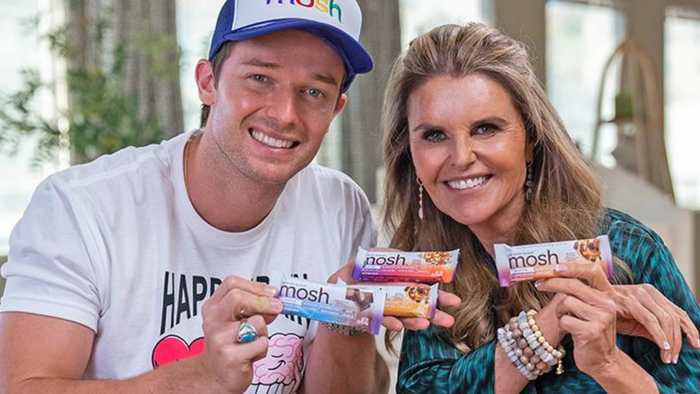Healthy aging products at Newtopia Now build on 'healthspan' messageHealthy aging products at Newtopia Now build on 'healthspan' message
Extending lifespan no longer the goal of healthy aging category as brands sell on vitality proposition.

At a Glance
- The focus on health and aging has shifted from extending lifespan to enhancing the quality of life across one's lifetime.
- Advances in self-diagnostic tools and consumer-driven trends are shaping the growing healthspan market.
- While supplements are part of the healthspan narrative, lifestyle changes are essential components of healthy aging.
Call it longevity, healthspan or active aging, the concept of not just extending life by years but extending wellness across decades was a common theme on the show floor at Newtopia Now.
Put simply, extending lifespan is no longer the goal. “The most important thing, ultimately, is the quality of the years that we have on this planet,” said Austin Perlmutter, M.Dd, of Big Bold Health at a panel on selling in nutrition in the “healthspan era.” Longevity, Perlmutter said, is “one data point in that larger equation.”
Both the panel, From Surviving to Thriving, Empowering Brands & Retailers in the Heathspan Era, and a keynote address by Blue Zones author Dan Buettner echoed the message of multiple brands selling supplements and functional foods at the show. But the idea stretches further into technology, with consumer sophistication around science transforming the category.
People are coming into aging with new expectations but also new ways of assessing whether their solutions are meeting those expectations, said Dave Janowicz, chief retail officer at Alive and Well, a health-focused pharmacy chain. Janowicz spoke on the healthspan panel about self-diagnostic tools like continuous glucose monitors allowing “real time feedback,” a trend that allows brands opportunities to sell solutions to match. “They can make changes to their routine and incorporate that very rapidly and see the results,” he said, “and the easiest way for them to do that is through the type of products that they're consuming. You can change what you have for breakfast and see how that's impacting you by lunchtime."

Newtopia Now panelists Dave Janowicz, Austin Perlmutter and Scott Dicker
Janowicz described customers at Alive and Well and asking about mitochondrial function, something that “never happened before.” For Matt Peterson, founder and supplements formulator at Nature’s Fusions, the kinds of consumers who are asking those questions are proof of how broad the healthspan movement has become. “It used to be that in the anti-aging/healthy aging category, you really had only super educated customers, people that were focused on longevity, people that were willing to take 40 supplements a day,” Peterson said, “but we've seen a lot more people who are just the average consumer, who are seeing on social media that, ‘oh, this can help me with my cellular energy.’”
Much of the growth so far, Peterson said, has been organic, driven by influencers and social media buzz. Big brands have not been driving the conversation, but outside events are beginning to move the market. When Amazon, banned sales of NMN (Nicotinamide Mononucleotide) based on FDA’s drug preclusion rules, consumers started coming into stores and finding other outlets. That helped Nature’s Fusion’s NMNH (Dihydronicotinamide Mononucleotide) find new consumers, Peterson said, adding that without a big educational push from a major brand, smaller brands like his are seizing the opportunity.
Healthy aging vs. healthy living
Supplements, however, were only part of the healthspan story at Newtopia Now. Buettner is promoting Blue Zones Kitchen frozen entrees, telling the keynote audience that despite all his findings about the importance of exercise and social connections, the most direct healthy aging interventions for most Americans will happen in the kitchen. “I’d start with the food,” he said.
At MOSH, eating has become central to a brain health concept that is finding resonance with healthspan-oriented consumers seeking anxious about cognitive decline. Founded by Maria Shriver and Patick Schwarzenegger to support research into Alzheimer’s disease, MOSH sells bars formulated with brain health ingredients including lion’s mane mushrooms, vitamin D and the branded ingredient Cognizin. Sales director Laura Setzfand says the brand intends the bars to be a lifestyle solution rather than a pill. “It's something that's part of your daily routine, rather than having to pull out a pill or a gummy or something that's separate from your lifestyle."

Patrick Schwarzenegger and Maria Shriver celebrating the launch of MOSH in 2021
The lifestyle concept clearly blurs the lines between healthy aging and healthy living. Speaking on the healthspan panel, SPINS Market Insights Director Scott Dicker said categories can shift across a spectrum of age demographics and use cases, citing sports nutrition and protein as an example. “Younger generations are trying to get bigger and stronger and older generations are using it to preserve muscle,” Dicker says.
The shift illustrates how much consumer perceptions of aging have changed, but Buettner maintains that the shift needs to be bigger and more profound for Americans. In the “blue zone” countries he studied, where centenarians are astonishingly more common than they are in the U.S., age is celebrated, he told the keynote audience. “Older people are regarded as treasures.”
And quality of life, as the healthspan message implies, is treasured as well.
About the Author
You May Also Like





